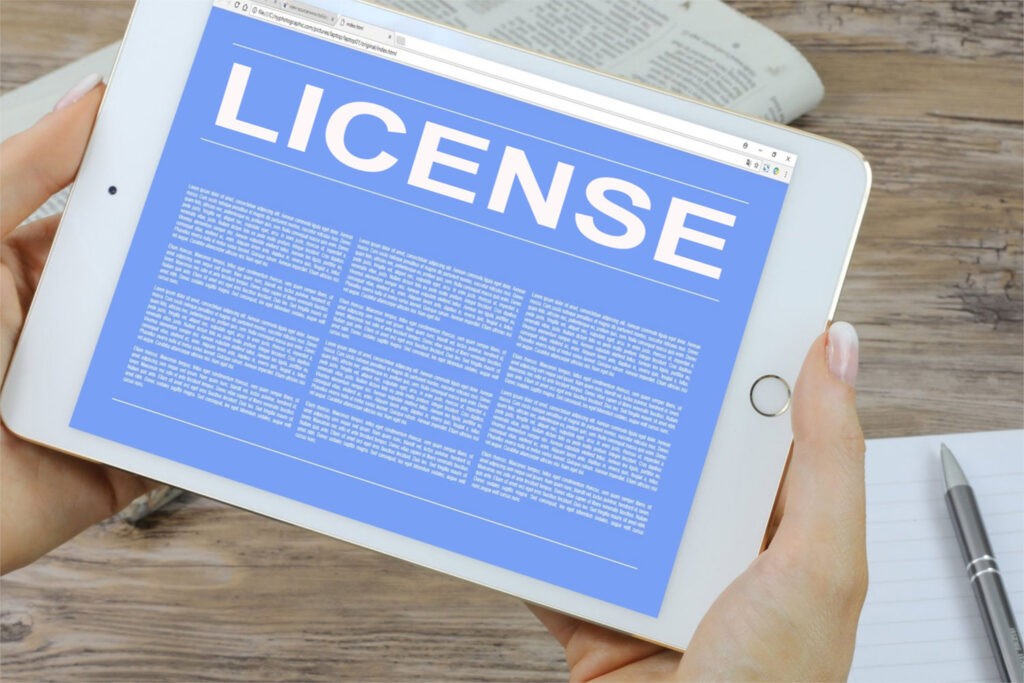Starting a travel agency is an exciting venture, but understanding the legal requirements is crucial for success. Many aspiring travel agents wonder, “Do You Need A License To Be A Travel Agent?” The answer isn’t always straightforward, as it varies depending on location and the scope of your business. This guide provides a comprehensive overview of the licenses, credentials, and legal safeguards necessary to protect your business and ensure compliance.
 ensure your dreams take flight
ensure your dreams take flight
Seller of Travel (SOT) Requirements in Key States
While there’s no nationwide federal requirement for travel agent licenses in the U.S., some states have specific regulations. These “Seller of Travel” (SOT) states—California, Florida, Hawaii, and Washington—require registration if you’re operating within or selling to consumers in those states. These laws aim to regulate sales and provide consumer financial protection. It’s vital to understand and comply with these requirements to avoid potential fines or business disruptions.
- California: California Seller of Travel Requirements
- Florida: Florida Seller of Travel Requirements
- Hawaii: Hawaii Seller of Travel Requirements
- Washington: Washington Seller of Travel Requirements
If you’re a hosted agent, you might be able to use your host agency’s credentials. For instance, in Florida, you might only need to file an exemption form.
State and Local Business Licenses
Beyond the SOT states, several other states have regulations that may necessitate specific licenses or requirements for your travel business. These include:
- Delaware
- Illinois
- Iowa
- Louisiana
- Massachusetts
- Michigan
- Nevada
- New York
- Pennsylvania
- Rhode Island
- Virginia
For example, opening an agency in Delaware requires an occupational license. A physical storefront in Louisiana may necessitate paying an annual licensing fee. Illinois might require trust accounts, and New York has specific disclosure rules for clients. Check with your local Chamber of Commerce or Secretary of State for detailed information on state and local regulations. Laws are subject to change, so consulting a local expert is advisable.
Credentials for Booking Travel Services
While not strictly licenses, specific credentials are required to book travel with suppliers like cruise lines, hotels, and airlines. Popular credentials include:
- IATA (International Air Transport Association): Essential for airline ticketing.
- CLIA (Cruise Line International Association): Required for booking cruises.
- TRUE (Travel Retailer Universal Enumeration): A widely recognized industry credential.
- ARC (Airlines Reporting Corporation): Needed for ARC Agency Accreditation in the airline ticketing business.
Without these credentials, travel agencies might lack access to essential travel products for their customers. Obtaining these credentials enhances your ability to offer a full range of travel services.
Business Structure and Registration
Determining your business structure is a crucial step often overlooked. The common business structures are sole proprietorship, limited liability company (LLC), and corporation.
- A sole proprietorship offers simplicity but no personal liability protection.
- A limited liability company (LLC) offers flexibility, liability protection, and tax benefits, but requires formal establishment.
- A corporation involves more regulatory and tax considerations.
Register your business with the local or state government, which may include obtaining a business license, regardless of the structure you choose. Consult your local chamber of commerce or secretary of state’s website for guidance on the necessary steps.
The Value of Travel Agent Certifications
While not always legally required, travel agent certifications can significantly boost credibility and demonstrate expertise. Certifications from reputable organizations can make you more competitive and attractive to clients.
 tips and ships
tips and ships
Here are a few well-regarded organizations:
- American Society of Travel Advisors (ASTA): Offers the Verified Travel Advisor certification, emphasizing ethics, regulatory competency, and business growth.
- Careers on Vacation: Provides comprehensive training programs and career retreats led by industry expert Cyndi Williams.
- Global Business Travel Association (GBTA): Ideal for agents focused on corporate clients, offering credentialing through their Certificate in Corporate Travel Execution and Global Travel Professional programs.
- The Travel Institute: Offers multiple certification programs for agents at all career levels, including Certified Travel Associate, Certified Travel Counselor, and Certified Travel Industry Executive.
Essential Legal Contracts, Waivers, and Insurance
Legal protections are crucial in the travel industry due to its inherent risks. It’s essential to have legal safeguards and safety nets for your agency.
- Terms and Conditions: Having solid terms and conditions in place clarifies responsibilities and helps mitigate risk.
- Legal Contracts and Waivers: Industry-specific legal contracts and waivers provide essential protection.
- Errors and Omissions (E&O) Insurance: E&O insurance covers you from potential mistakes or oversights.
Joining a Host Agency
If navigating licensure and credentials seems overwhelming, joining a host agency can be a great solution. Host agencies often provide credentials, higher commission levels, training, and support.
Some reputable host agencies include:
- Gifted Travel Network: Targeted to luxury travel agents, offering support, community, and a 12-month Travel MBA program for new advisors.
- Nexion Travel Group: Provides a comprehensive host experience for various levels of travel agents, offering GDS access, tools, training, and community.
- Pickles Travel Network: Focused on new travel agents, offering training resources and access to lead building and itinerary management tools.
- Trips & Ships Luxury Travel: Offers bespoke travel planning experiences, educational opportunities, marketing resources, and a platform for business growth.
Conclusion
Navigating the legal landscape of becoming a travel agent requires careful attention to federal, state, and local regulations. While a federal license isn’t required, understanding and complying with SOT laws, obtaining necessary credentials, structuring your business correctly, and investing in legal protections are essential steps. Whether you choose to go it alone or join a host agency, being well-informed and prepared will set you up for a successful and rewarding career as a travel agent. By understanding the answer to “do you need a license to be a travel agent?”, you’re better equipped to start your business. Explore Travel Industry Solutions (TIS) membership for legal contracts, marketing tools, and community support to help you thrive in your career. Visit our membership page to learn more.
